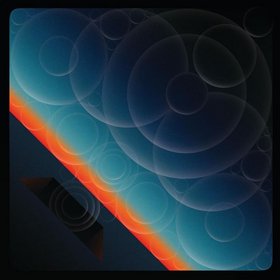The Mars Volta are back. Taken in the most literal sense, that is to say the band, fronted by Omar Rodríguez-López and Cedric Bixler-Zavala, have in Noctourniquet their first new album since 2009’s Octahedron. But on a figurative level, what Noctourniquet represents is a return to a beloved past. This new collection is most certainly not a pinnacle for the group, but it is a welcome rekindling of the same spirit and sonic magnitude that fueled their last undisputed gem, 2005’s Frances the Mute.
The Mars Volta have always been envelope pushers. This was as true on De-loused in the Comatorium, their unrivaled peak, as it was on their contrasting low point, Octahedron. It’s a part of their genetic make-up. At their best, The Mars Volta embrace the simplicity of songwriting as a foundation; they use hooks, basic melodies, and common song structures and then build outward, adding in fuzz, distortion, effects, or whatever their flavor of the moment is (on Noctourniquet, that means atmospheric synthesizers). They pick these basic formulas apart and reconstruct them in their own way, but at their innermost core they’re still working with familiar palettes. At their worst, they ignore songwriting’s fundamentals all together and force as many different instruments and abstract noises as possible into a common space, then stretch it well beyond its welcome. From a purely compositional standpoint, this record is The Mars Volta at their best.
“The Whip Hand,” the album’s first track, matches frenetic drumming — the one staple that has followed The Mars Volta throughout their lineage — with a thick bass synth that stands in for vocals as the hook. The synth itself actually sounds a bit dated, but consequently, recognizable. It takes just one play for the sound to latch itself to memory, eventually joined by Rodríguez-López’s curdled “that’s when I disconnect / disconnect from you” refrain. For an outfit that has at times deliberately shunned the notion of a chorus, this track effectively features two, one vocal and one instrumental.
Later, with “Dyslexicon,” the band forego almost everything that makes “The Whip Hand” work in favor of Octahedron‘s clutter, yet still find solid footing. The song amounts to a strange nexus of S.C.I.E.N.C.E.-era Incubus, Zack de la Rocha-esque vocals, and King Crimson atmospherics devoid of anything resembling a hook, yet here’s why it functions: this track is an outlier. By this point, now three songs into the album, the band have hit enough of a groove where a diversion seems the natural course. They’ve dipped their toes before diving head first. Flanked by “Empty Vessels Make the Loudest Sound,” a song that billows slowly before bursting to form Noctourniquet‘s first certifiable epic, “Dyslexicon” sounds less like an experimental detour and more like a necessary part of the voyage. There’s a tangible sonic narrative here; things like the electronic blips flickering in the background of “The Malkin Jewel,” a cut that offers a perfect example of how beautifully a strong hook can serve The Mars Volta’s aesthetic, seem intrinsically linked to the construction of the song and, further, the album (even though, honestly, you’d never notice if they weren’t there).
Even when the band come dangerously close to constructing actual pop songs (“Vedamalady”), Rodríguez-López and Bixler-Zavala’s greatest triumph on this record is staying grounded without sacrificing their unique identity. They largely resist the superfluous and indulgent. There are bits and pieces of Pink Floyd, Porcupine Tree, The Fall of Troy, and a large assortment of other notables mixed in here. But undoubtedly, Noctourniquet is a Mars Volta production. There won’t be another record in 2012 that sounds like this, a compliment given the sheer number of artists churning out records these days. And what a testament that is: by going back to the constructs of their early days, they have allowed themselves to simultaneously embrace coherent structures while still exploring their vast eccentricities. In the end, we all win: The Mars Volta have returned to form.

